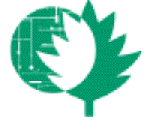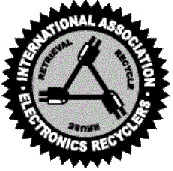Second On-Line Course Offering Being Planned
The Professional Recyclers of Pennsylvania's (PROP) recycling professional certification program is beginning work on its second on-line course offering. The initial on-line offering, Collection Techniques and Options, is still available on the PROP website. The on-line classes are part of a comprehensive professional certification program administered by PROP in cooperation with Penn State - Altoona. Financial support comes from the Department of Environmental Protection.
PROP has been discussing cooperative efforts with other states to offer similar certification programs outside Pennsylvania. It is the organization's intention to offer a generic package of templates and materials to interested states.
"We feel that a program that can be customized for each state is the ideal model," says PROP Executive Director John Frederick. "A few subjects may lend themselves to a one size fits all approach." But Frederick contends that PROP's success has been rooted in the individualized state focus that is so important for most topics. "We have filled a niche in Pennsylvania that nationally based programs simply cannot fill."
States interested in discussing the program more can contact Frederick by e-mail or phone (800-769-PROP).
Grant Given to the Institute for Local Self-Reliance for Deconstruction Demonstration Project
A $99,466 market development grant was provided to the Institute for Local Self-Reliance in Philadelphia for a one-year study to assess supply and demand issues and examine market barriers and related opportunities for reusing recovered residential building materials in southeastern Pennsylvania.
The study will serve as a resource for the city of Philadelphia and other urban areas interested in exploring ways to recover wood and bricks; architectural salvage such as light fixtures, kitchen cabinets, doors and moldings; window frames, door frames and flooring; and other building materials. Expanding the markets for these products will support emerging deconstruction and reuse companies in the region.
Finding markets for this recovered residential building material will help Pennsylvania's environment by keeping such material out of landfills, and create jobs in firms that recover and sell this material for re-use. At the same time, demolishing homes can create environmental problems relating to the disposal of this material, and safety hazards if the material is not removed quickly from the site. Neighborhood safety will be enhanced if there is an economic incentive to remove material from abandoned homes quickly so it can be sold for re-use.
In a pilot project last year, the Institute for Local Self-Reliance , or ILSR, came up with a strategy for deconstructing two homes and conducted a demonstration "architectural salvage" of a third house. The nonprofit organization identified a wide range of salvageable materials, researched existing markets for them and estimated the recovered material retail value at $8,000.
ILSR and Penn State's Hamer Center for Community Design Assistance will disseminate the findings of this study throughout the state to inform others about opportunities for similar material recovery efforts in their regions.
DEP Announces Latest Round of Municipal Recycling Grants
Environmental Protection Secretary Kathleen A. McGinty announced the availability of Recycling Development and Implementation Grants to help finance municipal programs that give more than 10 million Pennsylvanians access to recycling.
Pennsylvania's recycling program, created under Act 101 of 1988, mandated recycling in Pennsylvania's larger municipalities, required counties to develop municipal waste management plans and created the Recycling Fund, supported by a $2 per ton tipping fee on all landfilled materials in the state to provide grants to offset local government expenses.
Recycling Development and Implementation Grants reimburse local governments for the cost of municipal recycling and composting programs. Municipalities are eligible for 90 percent funding of approved recycling program costs. Grants of up to $500,000 are available. Grant applications must be received or postmarked by June 17.
In February, DEP awarded 162 Recycling Development and Implementation Grants totaling $20 million to ensure that recycling continues to be a strong contributor to the state's economy.
Pennsylvania Recycling Markets Center
The Commonwealth of Pennsylvania has established the Pennsylvania Recycling Markets Center (RMC) to improve markets for recyclables produced from Pennsylvania municipalities, businesses, and institutions. The RMC has been established as a non-profit subsidiary of The Pennsylvania State University, overseen by and located at its Middletown Campus near Harrisburg, PA. The RMC will be governed by its own Board of Directors, and will have an Executive Director and five staff.
The Board of Directors organized and held their first Board meeting on March 23, 2005. Serving on the Board are: Richard Allan, ISRI; Bill Heenan, SRI; Charlie Cole, PSU; Joanne Shafer, Professional Recyclers Of Pa and Centre County Solid Waste Authority (Chair); David Mazza, Pennsylvania Resources Council (Secretary); John Lloyd, MANTEC; Mike Dougherty, Pennsylvania Waste Industries and Waste Management, Inc.; Bill Cook, PA Department of Community and Economic Development; and Tom Filder, Department of Environmental Protection.
Mary Ann Remolador of NERC, Linda Knapp of MACREDO (Mid-Atlantic Consortium of Recycling and Economic Development Officials) and Lee Fox of MACRO (Mid-America Council of Recycling Officials) serve as ex-officio members of the Board.
The April meeting will be a two day meeting, with one day devoted to interviewing candidates for the Executive Director position. The Executive Director will serve as President of the Board. Seventy-six applications were received at PSU for the position.
After hiring of the Executive Director is completed, technical and administrative staff will be hired. In addition to one administrative staff position, it is anticipated that 3-4 technical staff positions will be filled to support the RMC programs.
Mercury Switch Removal Program
The Department of Environmental Protection, AERC Recycling Solutions, Bethlehem Apparatus Co. Inc., Clean Air Council, Institute of Scrap Recycling Industries, Pennsylvania Automotive Recycling Trade Society (PARTS) and Steel Recycling Institute are partnering to invite automobile recyclers to participate in Pennsylvania's Mercury Switch Removal Program. Workshops on the initiative are being held across the state during March and April.
The goal of the program, launched last November, is to recycle at least 600 pounds of mercury through a voluntary two-year program that encourages the removal of mercury-containing switches from "end of life" vehicles.
Any automobile recycler or eligible business --- shredders and auto repair shops, for example --- in the Commonwealth can apply for the program. Registered businesses will receive free informational materials, training and removal guidance, safety equipment, free shipping and mercury-switch recycling, and a $1 incentive per mercury switch recycled.
Great Pennsylvania Cleanup
On April 23, the Second Great Pennsylvania Cleanup will be held across the Commonwealth as sportsmen groups, watershed associations and community organizations pick up litter to make PA a better place to live, work and play.
This ambitious statewide effort to remove litter and trash from the state's roadways, parks, forests, riverbanks, neighborhoods and open spaces is being supported and sponsored by a wide range of businesses, trade organizations, civic and environmental groups, as well as local and state government agencies, including the departments of Environmental Protection (DEP), Transportation (PennDOT), and Conservation and Natural Resources (DCNR), and the Pennsylvania Fish and Boat Commission (PFBC).
Last year during the first year of the Great Pennsylvania Cleanup, more than 182,000 Pennsylvanians took part in more than 5,100 organized cleanup projects, removing more than 233,000 garbage bags from Pennsylvania's communities.
The response for this year has been fantastic, with almost 300 Great Pennsylvania Cleanup groups registered and attendance estimated at almost 23,000 people. These cleanups, coupled with the thousands of people who registered with PennDOT's Adopt-A-Highway program, promise to make the second annual Great Pennsylvania Cleanup even bigger than last year's.
The Great Pennsylvania Cleanup coincides with Earth Day. The theme of the cleanup is "Let's Pick It Up, PA!"
This year, the Commonwealth is making a special invitation to sportsmen and sportswomen to join the cleanup since litter prevention and cleanup play such an important part in the enjoyment of fishing and other outdoor sports. Those sports in turn play a pivotal role in Pennsylvania's economy. Recreational fishing alone contributes more than $2 billion annually to the state's economy, supporting nearly 15,000 jobs.










































 Newspaper Association of America as a renewing Sustaining Member, and
Newspaper Association of America as a renewing Sustaining Member, and 


